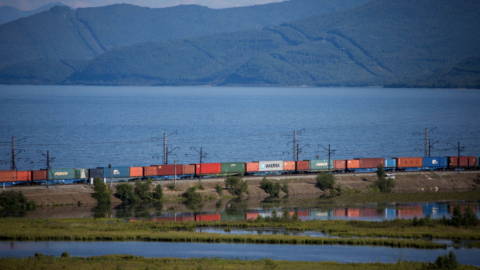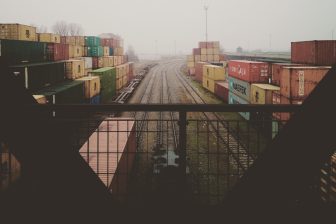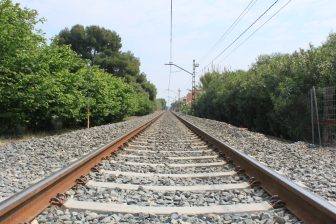
Is the revival of Eurasian rail freight short-lived?
Just as rail freight between China and Europe is reviving, the European market is seeing manufacturers closing its doors. This could lead to a decrease in export to China, and also import from China when it comes to spare parts required in certain factories. This is the conclusion of several market players on the New Silk Road.
“What worries me, is the closure of certain factories in Europe”, said Jacky Yan of Chinatrans International during the RailFreight Webinar about combined transport during the corona crisis. Based in Chengdu, he has been reporting the situation on a regular basis. At the moment, rail freight between Europe and China is booming, he notes.
Temporary peak
This month the Chinese national development and Reform Commission (NDRC) announced that rail freight traffic between Europe and China had resumed by more than 90 per cent. Compared to the same period last year, the number of trains even increased. By the end of February, 1132 trains had run between China and Europe from the start of the year.
As there is a travel time of around two to three weeks for most Eurasian rail freight services, this revival of the Chinese market will start to be felt in Europe in the coming weeks, points out Dennis de Roo from Distri Rail, a Dutch forwarder. The situation has been difficult for the past weeks, but at the moment the trains are packed.
Also Poland’s state-run PKP Cargo hopes to benefit from an expected rebound in cargoes when China’s economy recovers from the coronavirus outbreak, the company’s CEO was cited by Reuters. “We hear that factories in China are starting to work and rail has an advantage here. We are able to deliver cargo faster and time will be key in that respect,” PKP Cargo Chief Executive Czeslaw Warsewicz told the press agent.
Short-lived?
Are these hopes for a revival in vain? It could be that the climax will not last long, the logistics industry agrees. At the moment we experience a peak, but it could very well be that this looks very different next month, due to the coronacrisis in Europe, said Hanno Reeser from New Silkway Logistics.
The most significant closures at the moment are those of automobile manufacturers. Last week, PSA, Fiat Chrysler Automobiles, Renault, Michelin and also Volkswagen closed their factories in Europe at least until the end of March. At Renault, the closure even applies until further notice. At the Belgian Audi factory, workers have stopped work themselves. Many of these companies transport their wagons by rail.
But also production in other segments are at risk. Five days ago, all nonessential factories across Italy were ordered to shut down in an attempt to halt the coronavirus outbreak. Moreover, many companies are struggling with a shortage of labour due to illness. The logistics industry is still running, but will be affected in the long-term, is the expectation.
Blank sailings
This trend is already visible in the shipping industry, where the first bank sailings from China to Europe have been reported. The 2M alliance partners Maersk and MSC, for example, are canceling two sailings that should have taken place next week. Maersk reports on its website that the service has been canceled due to “declining market demand”. MSC mentioned “adapting capacity to current market demand amid the covid-19 developments.”
Yet, the revival of the Chinese economy is very good news for the logistics industry worldwide. There are companies that profit from the reopening of factories in China, regardless of what is happening in Europe.
Still good news
Such example are leading British car manufacturers, notably Jaguar and Landrover, which rely on car parts from China. These companies can now continue their production without worrying about supply of car parts, something that was much different a month ago, Reuter points out.
The same article cites Fu Xiaolan, founding director of the Technology and Management Center for Development at Oxford University, saying that gradual resumption of production in China is a good sign, not only important for China’s economic growth, but also vital for the stability of the value chain and market both in Europe and the world.
The work resumption in China will speed up the economic exchanges and material flows between China and Europe, said Wang Dezhan, president of China Railway Container Transport Europe Logistics Co., Ltd, citing China Railway Express trains as an example.





